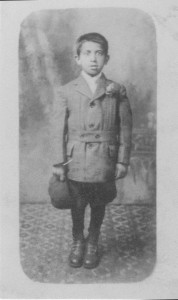
Gilbert Guy Del Principe (my grandfather)
As promised in the previous blog here are some of the documents I received from Kathy at GenTracer.
Click here for Family Group Record Sheets for: Cesidio Gaetano del Principe, Mattio del Principe, Donato del Principe, Cesidio Boccia, and Antonio Gentile. Family Group Records
Click here to print the Pedigree Chart for my great grandfather Pedigree Chart for Pietro Giovanni Del Principe .
Here are instructions from Kathy about how to read documents that are written in Italian. Reading a birth document, Reading a marriage document, and Reading a death document
Doumentation From GenTracer:
The birth, marriage and death records of Pescasserroli for 1854-1858 (FHL #1360904). The marriage of Vincenzo del Principe with Lionarda Liboria Rossi, filed on 15 July 1856. Vincenzo and Liboria (Birth and Marriage) 4 pages.
The first page was the birth extract for Vincenzo del Principe, filed on 2 July 1830 in Pescasserroli. The birth was reported by the midwife. The male child was born to the married couple of Annamaria Boccia, 23 years old and a spinner living in Pescasserroli and Gaetano del Principe, 31 years old and a shepherd living in Pescasserroli on 2 July 1830 in their family home. The right column shows that he was baptized on the same day in the parish of Pescasserroli.
Page 2 was the birth extract for Lionarda Liboria Rossi, filed on 23 March 1832 in Pescasserroli. The birth was reported by a midwife. The female child was born to the married couple of Giovanni Rossi, 40 years old and a laborer living in Pescasserroli and Maria Rosaria del Principe, 41 years old and a spinner living in Pescasserroli on 23 March at their family home. The right column shows that she was baptized on the same day in the parish of Pescasserroli.
Pages 3-4 were the marriage record of Vincenzo del Principe with Lionarda Liboria Rossi, filed on 15 July 1856. The groom was 26 years old, born in Pescasserroli and a shepherd living in Pescasserroli. He was a son of Gaetano del Principe, a shepherd living in Pescasserroli and Annamaria Boccia, a spinner living in Pescasserroli. The bride was 24 years old, born in Pescasserroli and living in Pescasserroli. She was a daughter of Giovanni Rossi, a shepherd living in Pescasserroli and Maria Rosaria del Principe, a spinner living in Pescasserroli. The right column shows that this wedding occurred on 15 July in the parish of San Pietro and Paolo in Pescasserroli. Source #2
The birth, marriage and death records of Pescasserroli for 1851-1854 (FHL #1360903). #81, the birth of Pietro Giovanni del Principe, Birth Record of Pietro Giovanni Del Principe filed on 24 June 1853. The birth was reported by a midwife. The male child was born to the married couple of Gaetano del Principe, 46 years old and a shepherd living in Pescasserroli and Annamaria Boccia, 40 years old and a spinner living in Pescasserroli on 24 June in their family home. The right column shows that he was baptized on the same day in the parish of Pescasserroli. Source #3
#7 The first page was the birth extract for Samuele Nicola del Principe, filed on 13 February 1824 in Pescasserroli. The birth was reported by a midwife. The male child was born to Beatrice Criola, 36 years old and a landowner living in Pescasserroli and Francesco del Principe, 38 years old and a landowner living in Pescasserroli on 13 February in their family home. The right column shows that he was baptized on the same day in the parish of Pescasserroli.
Page 2 was the extract of the birth of Maria Domenica del Principe, filed on 28 February 1833. The birth was reported by a midwife. The female child was born to the married couple of Gaetano del Principe, 31 years old and a shepherd living in Pescasserroli and Annamaria Boccia, 27 years old and a spinner living in Pescasserroli on 28 February in their family home. The right column shows that she was baptized on the same day in the parish of Pescasserroli.
Page 3 was the extract of the death of Beatrice Criola, filed on 21 April 1848. The death occurred on 20 April at her home. She was the wife of Francesco Saverio del Principe, a farmer in Pescassedrroli. She was 59 years old, born in Pescasserroli and a spinner living in Pescasserroli. She was a daughter of the late Nicola Criola and the late Donata del Principe.
Pages 4-5 were the solemn promise to marry for Samuele Nicola del Principe with Maria Domenica del Principe, filed on 3 August 1854. The groom was 30 years old, born in Pescasserroli and a laborer living in Pescasserroli. He was a son of Francesco del Principe, a laborer living in Pescasserroli and the late Beatrice Criola. The bride was 22 years old, born in Pescasserroli and living in Pescasserroli. She was a daughter of Gaetano del Principe, a shepherd living in Pescasserroli and Annamaria Boccia, a spinner living in Pescasserroli. The right column shows that this wedding occurred on 3 August in the parish of San Pietro and Paolo in Pescasserroli. Source #4
The birth, marriage and death records of Pescasserroli for 1847-1850 (FHL #1360902). They included: #54, the birth of Maria Scolastica del Principe, filed on 17 June 1849. The birth was reported by a midwife. The female child was born to the married couple of Gaetano del Principe, 42 years old and a shepherd living in Pescasserroli and Annamaria Boccia, 38 years old and a spinner living in Pescasserroli on 17 June in their family home. The right column shows that she was baptized on the same day in the parish of Pescasserroli. Source #5
The birth, marriage and death records of Pescasserroli for 1843-1846 (FHL #1360901). They included: #59, the birth of Gerardo del Principe, filed on 24 May 1844. The birth was reported by a midwife. The male child was born to the married couple of Gaetano del Principe, 40 years old and a shepherd living in Pescasserroli and Annamaria Boccia, 38 years old and a spinner living in Pescasserroli on 24 May in their family home. The right column shows that he was baptized on the same day in the parish of Pescasserroli. Source #6
#28, the birth of another Gerardo del Principe, filed on 7 April 1846. The birth was reported by a midwife. The male child was born to the married couple of Gaetano del Principe, 45 years old and a shepherd living in Pescasserroli and Annamaria Boccia, 36 years old and a spinner living in Pescasserroli on 7 April in their family home. The right column shows that he was baptized on the same day in the parish of Pescasserroli. Source #7
The birth, marriage and death records of Pescasserroli for 1839-1843 (FHL #1360900). They included #38, the birth of Berorda del Principe, filed on 2 May 1842. The birth was reported by a midwife. The female child was born to the married couple of Gaetano del Principe, 40 years old and a shepherd living in Pescasserroli and Anna Maria Boccia, 35 years old and a spinner living in Pescasserroli on 2 May in their family home. The right column shows that she was baptized on the same day in the parish of Pescasserroli. Source #8
The birth, marriage and death records of Pescasserroli for 1836-1839 (FHL #1360879). They included #15, the birth of Antonio Luigi del Principe, filed on 12 March 1839. The birth was reported by a midwife. The male child was born to the married couple of Gaetano del Principe, 37 years old and a shepherd living in Pescasserroli and Annamaria Boccia, 33 years old and a spinner living in Pescasserroli on 12 March in their family home. The right column shows that he was baptized on the same day in the parish of Pescasserroli. Source #9
The birth, marriage and death records of Pescasserroli for 1833-1836 (FHL #1360878). They included: #6, the birth of Maria Domenica del Principe, filed on 28 February 1833. The birth was reported by a midwife. The female child was born to the married couple of Gaetano del Principe, 31 years old and a shepherd living in Pescasserroli and Annamaria Boccia, 27 years old and a spinner living in Pescasserroli on 28 February in their family home. The right column shows that she was baptized on the same day in the parish of Pescasserroli. Source #10
#10, the birth of Lucia Carmina del Principe, filed on 2 March 1836. The birth was reported by a midwife. The female child was born to the married couple of Gaetano del Principe, 34 years old and a shepherd living in Pescasserroli and Annamaria Boccia, 30 years old and a spinner living in Pescasserroli on 2 March in their family home. The right column shows that she was baptized on the same day in the parish of Pescasserroli. Source #11
The birth, marriage and death records of Pescasserroli for 1828-1833 (FHL #1360877). They included: #11, the marriage of Gaetano del Principe with Anna Maria Boccia, filed on 6 September 1829. The first page was an extract of the baptism of Cesidio Gaetano del Principe on 18 March 1799 in Pescasserroli. He was born to Mattio, son of the late Donato del Principe and Maria Scolastica, daughter of the late Anseleto Salterelli, a married couple.
Page 2 was an extract of the baptism of Annamaria Boccia on 11 July 1808 in Pescasserroli. She was a daughter of Cesidio, son of the late Michele Boccia and Domenica, daughter of the late Antonio Gentile, a married couple. Page 3 was an extract of the death of Mattio del Principe, filed on 20 November 1816 in Foggia. The death occurred on 19 November. He was from Pescasserroli, 55 years old and a farmer living in Foggia on strada Cattiglima. He was a son of the late Donato del Principe and the late Maria Tarquinio.
Page 4 was an extract of the death of Donato, son of the late Mattio del Principe on 8 September 1786 in Pescasserroli. Page 5 was an Death extract Maria Domenica Gentile on 25 April 1820 in Pescasserroli. She was the wife of Cesidio Boccia, 40 years old and born in Pescasserroli. She was a spinner living in this town. She was a daughter of the late Antonio Gentile, a shepherd of this town and the Lucia Sant’Ercole, living in this town.
Page 6 was the solemn promise to marry. Pages 7-8 were the solemn promise to marry from the marriage book, filed on 6 September 1829 in Pescasserroli. The groom was Gaetano del Principe, 30 years old, born in Pescasserroli and a shepherd living in Pescasserroli. He was a son of the late Mattio del Principe and Maria Scolastica Saltarelli, a spinner living in Pescasserroli. The bride was Anna Maria Boccia, 21 years old, born in Pescasserroli and living in Pescasserroli. She was a daughter of the Cesidio Boccia, a shepherd living in Pescasserroli and the late Domenica Gentile. The wedding occurred on 6 September in the parish of Pescasserroli. Source #12
#55, the Birth of Vincenzo del Principe, filed on 2 July 1830. The birth was reported by the midwife. The male child was born to the married couple of Annamaria Boccia, 23 years old and a spinner living in Pescasserroli and Gaetano del Principe, 31 years old and a shepherd living in Pescasserroli on 2 July 1830 in their family home. The right column shows that he was baptized on the same day in the parish of Pescasserroli. Source #13
I did not scan every document as a pdf file for this blog. As time permits I will try to scan and add them all. Now I wait patiently for Kathy to return from her month long research trip to Italy so that she can mail us our records for the Ciolli side of the family. Thank you GenTracer!

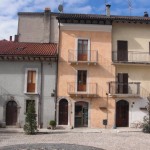
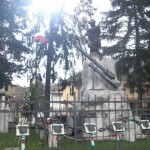
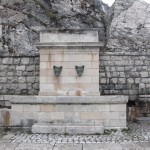
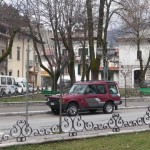
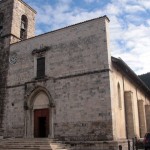
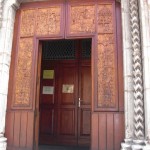
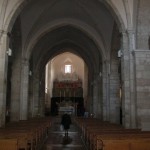
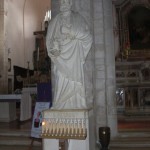
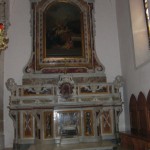
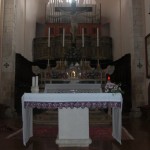
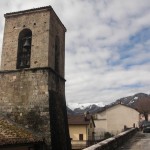
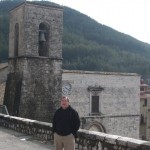
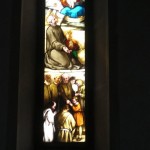
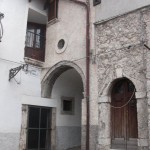
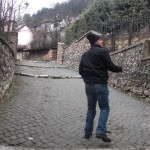
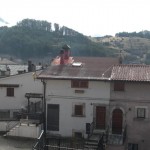
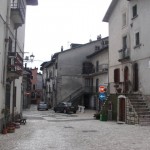
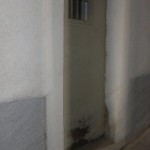
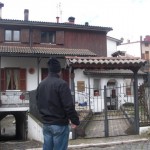
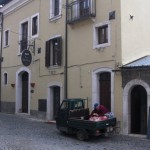
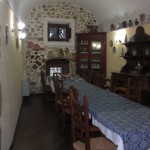
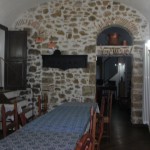
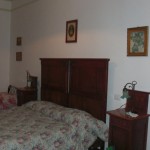
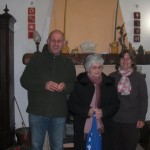
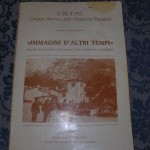
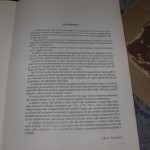
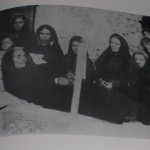
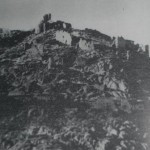
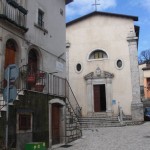
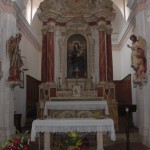
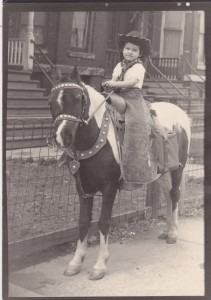
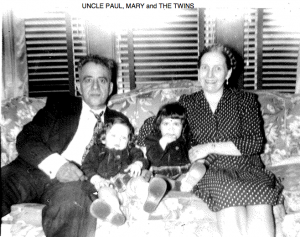
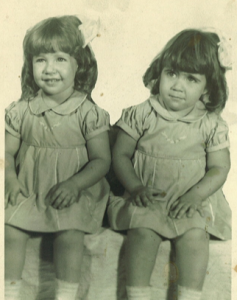
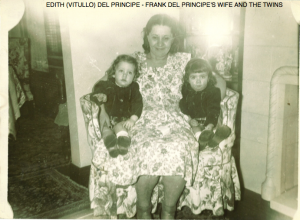
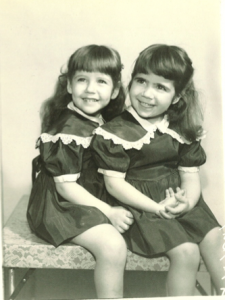

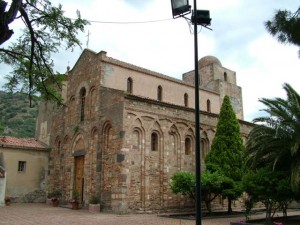
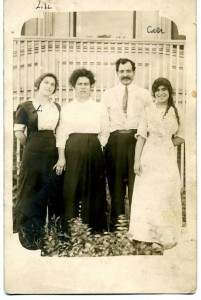
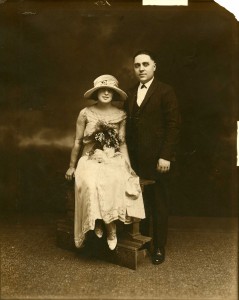
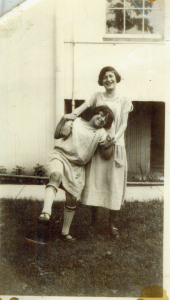
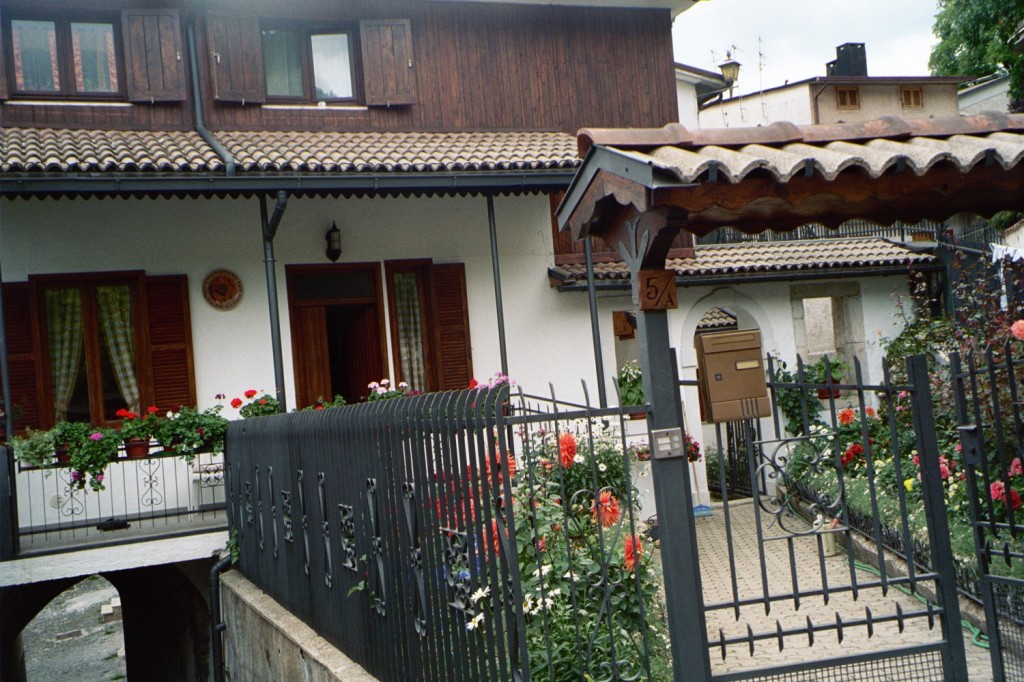
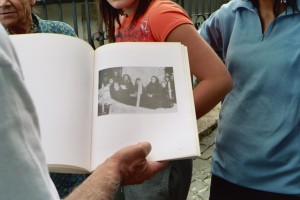
Comments
thank you for your comment. It’s alway More...
Gemma was Auntie Phyllis' Godmother. More...
Such a beautiful story! Thank you for sh More...
Phyllis..... Thank You for Posting My Ph More...
Thank you to all who have posted. I wis More...